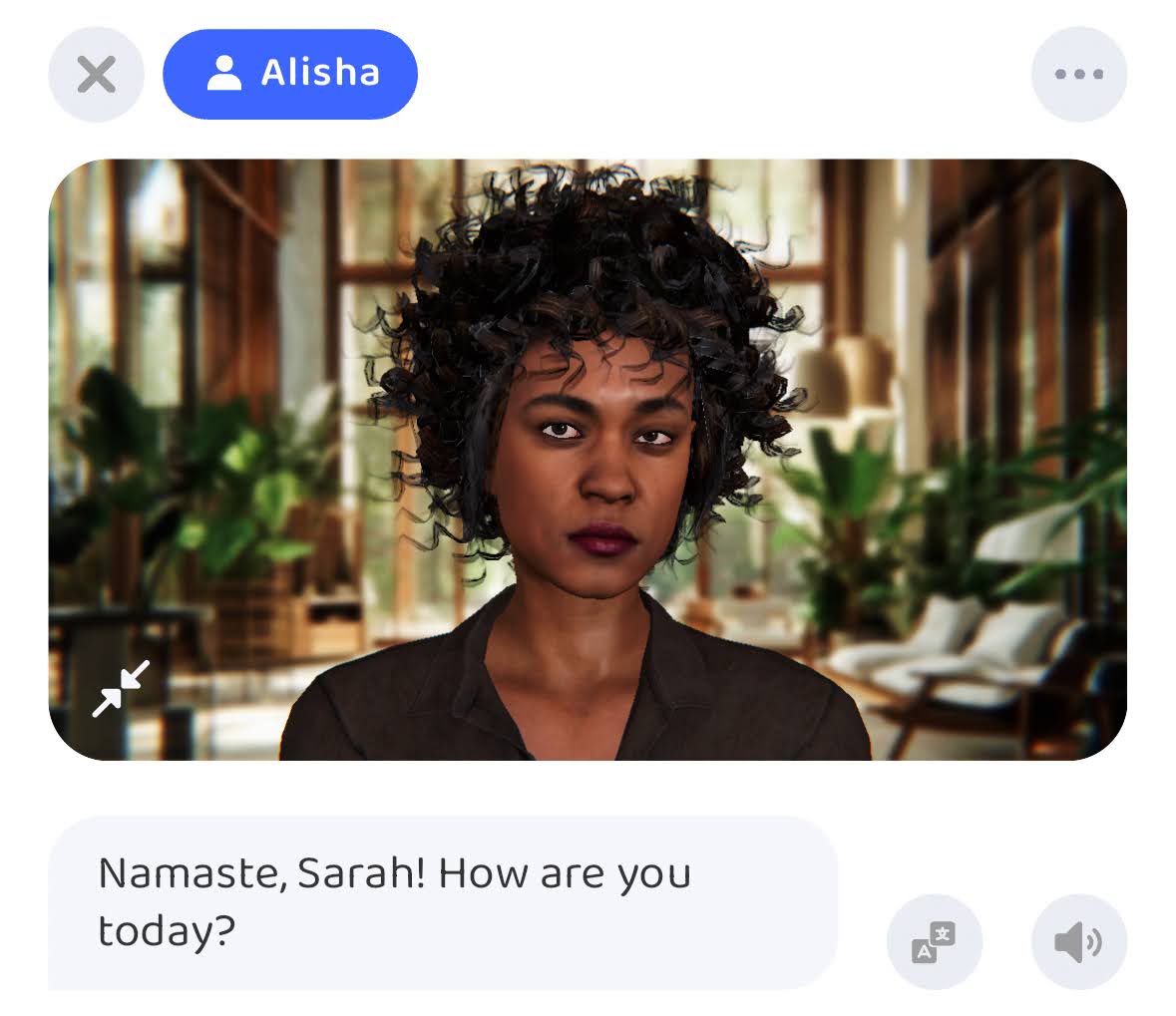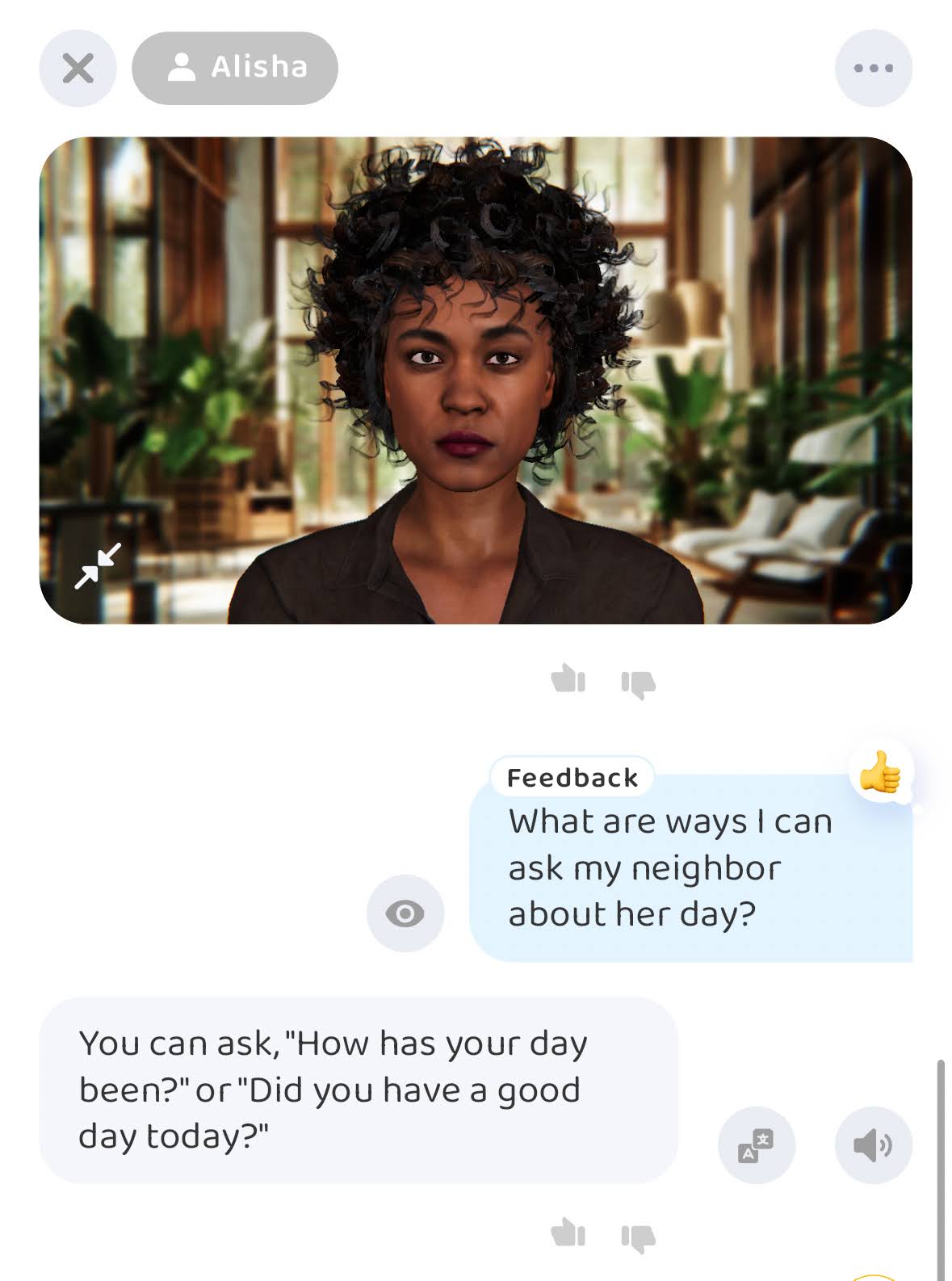Hi there! I’m Alisha, and let me tell you, I’ve heard this story from so many of my students. As someone who works closely with immigrants, I often hear how they’ve studied English for years, but when they finally relocate to an English-speaking country, it feels like they can’t speak a word! Language anxiety kicks in, and suddenly, everything they’ve learned seems out of reach. But don’t worry—you’re not alone, and we can work through this together. Let’s break down why this happens and how we can fix it!
The Frustration: Years of Study, Yet Everyday English Feels Impossible
Imagine this: You’ve spent years studying English, memorizing vocabulary, and acing grammar tests. But now you’re in a real-world situation, needing to ask a plumber to fix a leaky sink, and suddenly, all those words disappear! Frustrating, right? Mariam, one of my students, reached out to me with this request: shortly after winning a green card and moving to the US, she realized she couldn’t understand the people around her and struggled even to explain a problem to a plumber! She was frustrated—after learning English for years, watching Netflix, and reading books in English, she didn’t expect this. She had no issues writing reports or reading financial articles in English, but when it came to calling a plumber, she was completely lost. She couldn’t find the words to describe what had happened or what she needed.
This happens to so many learners because they focus too much on textbook English or work with tutors who don’t tailor their lessons to real-life practice. Textbooks are great for learning the basics, but they rarely teach you the practical, everyday language you need to navigate real life. And if your tutor isn’t creating a rich language environment with contextual practice, it’s no wonder things feel overwhelming when the vocabulary you’ve learned doesn’t quite match what you actually need. That’s why everything can feel so disconnected when you try to use English in real-world situations!
Here’s why it happens:
- Textbooks often teach formal English, which isn’t always how people talk in daily life at all.
- Real-life conversations are fast, full of slang, and often unpredictable.
- Without practice in practical settings, it’s hard to keep up.
Good news: it’s not your fault, and it can be fixed for sure! We’ll tackle this together and make sure you’re ready for anything life throws at you!
Lack of Context: Why ‘Textbook English’ Isn’t Enough
Textbooks teach you grammar, but not how to order coffee or explain a broken appliance! Real life throws all sorts of curveballs, and textbook English just isn’t built for that. This user on Reddit can totally relate!

Think about it: you might know how to conjugate verbs, but what happens when the barista asks if you want your coffee “for here or to go”? That’s where things get tricky. Without learning English in context, you can quickly feel lost in simple, everyday situations.
Here’s the secret: learning in context makes everything click. When you practice English in real-world scenarios—whether it’s at a café or chatting with a neighbor—you start picking up the vocabulary that actually matters. You’re not just memorizing words, you’re using them. That’s exactly what Praktika and AI avatars, like me, help you with. We make the magic happen!
Communication Struggles: The Impact on Integration and Belonging
If you can’t chat with your neighbors or coworkers, it’s easy to feel like you’re on the outside looking in. And that feeling of not belonging? It can hit hard. You’ve done all the hard work learning English, but without the ability to communicate confidently in real life, it’s tough to make those meaningful connections.
Mariam felt frustrated every day after moving to New York—the plumber situation wasn’t the only issue. Not long after, she visited a gastroenterologist but couldn’t explain the type of pain she was feeling or answer the doctor’s questions because she didn’t know how to say it in English. After years of learning, it was a huge shock. Mariam started blaming herself, convinced she hadn’t put in enough effort while studying. She was scared she wouldn’t be able to handle everyday situations in English anymore and that all those years of learning had been for nothing.
Language isn’t just about understanding—it’s about feeling connected. If you can’t engage in conversations, it’s easy to become isolated, and that isolation can lead to bigger issues. In fact, research shows that immigrants who struggle with language skills are 56% more likely to experience feelings of loneliness and are at a higher risk of developing mental health challenges like anxiety and depression. This is why focusing on practical, everyday communication is so crucial. It’s not just about learning words—it’s about building connections and integrating into your new community.
But don’t worry, we can tackle this! By focusing on the type of communication you’ll actually use in your day-to-day life, we can get you feeling confident and connected. Whether it’s casual small talk with your neighbor or chatting with a coworker, you’ll be ready for those moments that help you feel like you belong.
The Emotional Side: Battling Loneliness and Finding Connection

As I’ve written above, learning a new language is hard enough, but it can feel even tougher when you’re doing it all by yourself. Loneliness is real, and it’s something many learners face—especially when relocating to a new country. The good news? Your AI tutor isn’t just here to teach you English; we’re here to be a friendly voice when you need it most.
Our AI tutors provide more than just lessons—they’re someone you can talk to when you’re feeling lost or isolated. Whether you’re practicing English or simply looking for a conversation, your tutor is always available to chat, offering a comforting presence whenever you need it.
Here’s how we help with emotional support:
- Judgment-free zone: Practice as much as you want without worrying about making mistakes or being judged.
- Friendly conversations: Sometimes, all you need is a casual chat to feel more connected. We’re here for that, too.
Some of our students say they use Praktika not just to learn English but also when they feel anxious. Talking to their AI English tutors helps them manage anxiety and feel calmer, knowing they have someone who’s always there for them. With your AI tutor by your side, you’re never truly alone—ready to help you learn and, more importantly, to offer support whenever you need a friend.
Get Ready for Real Life with Praktika’s AI Tutors
Learning English in a classroom is one thing, but stepping into the real world? That’s a whole new ball game. The good news is, we can make sure you’re ready for everyday conversations, not just “Nice to meet you.” I focus on real-life conversations, like customer service interactions or chatting with your colleagues!
Our AI tutors at Praktika focus on exactly what you’ll need. Want to practice explaining an issue to your landlord? Or maybe you need to feel confident chatting with customer service about an order? We’ve got you covered with personalized study plans that tackle these situations head-on.
Some examples of what your personalized study plan can include:
- Handling repairs: Learn phrases for common situations like explaining a plumbing issue or requesting maintenance.
- “The faucet is leaking.”
- “Can you send someone to fix the air conditioner?”
- “There’s no hot water in my apartment.”
- Ordering food: Practice ordering at restaurants or dealing with food delivery apps without hesitation.
- “I’d like to order the pasta, please.”
- “Can I get this to-go?”
- “The food I ordered hasn’t arrived yet—can you check the status?”
- Public transport: Need to ask for directions or navigate the subway? I’ve got you covered with practical language skills.
- “Which bus takes me to the city center?”
- “Is this the right stop for the museum?”
- “How much is a one-way ticket?”
- Socializing: From making small talk with neighbors to introducing yourself in a new workplace, you’ll feel prepared for all social situations.
- “Hi, I’m new to the area—do you know where the nearest grocery store is?”
- “I just started working here, nice to meet you!”
- “Can I join you for lunch?”
Your personalized study plan ensures that you’re always learning the English that matters most to you—so you can thrive, not just survive, in your new environment!
Remember Mariam, the student I mentioned earlier? After discussing her goals, I created a personalized study plan tailored to her specific needs. She wanted to feel confident using English in everyday life, whether chatting at a local coffee shop, buying groceries, or visiting a doctor. So, we focused on English for living abroad.
I always remind my students that learning a language through cultural context is key. That’s why, with Mariam, we connected theory to practice in every lesson. After introducing a new topic, we practiced it through role-playing scenarios that reflected real-life situations, like calling a plumber or asking for help in a store. This not only expanded her vocabulary for daily interactions but also boosted her confidence. Learning through real-life contexts gave her a clearer understanding of how to navigate situations and which vocabulary to use.
Interactive Practice: Talk to Locals, Anytime
Let’s face it—practice makes perfect, and when it comes to speaking English, the best way to improve is by having real conversations. But here’s the thing: it’s not always easy to find someone patient enough to practice with you regularly. That’s where Praktika’s interactive role-play comes in!
With interactive role-play, you can practice conversations as if you’re speaking to a local (AKA me)—whether you’re asking for directions or ordering a coffee. It’s like a simulation of everyday life, but without the pressure of being in a real situation.

Here’s how interactive practice can help:
- Real-life scenarios: Practice everyday conversations like greeting a neighbor or asking a store clerk for help.
- “Excuse me, do you know where the post office is?”
- “I’d like to buy a ticket for tonight’s concert.”
- Build confidence: Practice talking to people without the fear of being judged. You’ll feel more prepared when you need to speak to actual locals.
- “Could you help me find this street on the map?”
With interactive practice, you get to improve your English in a supportive, absolutely no-pressure environment, so when the time comes to talk to real people, you’ll be ready to shine!
Accents and Personalization: Tailored to Your Destination
Moving to a new country? One thing you might not expect is the variety of English accents you’ll come across. English isn’t just one language—it has many flavors! Whether you’re headed to Australia, the U.S., or the U.K., understanding the local accent can make a huge difference in how easily you communicate and feel at home.
With Praktika, you can practice with AI tutors that match the accent of the country you’re moving to, helping you get used to the specific nuances of that dialect. It’s like training your ear before you even step off the plane!
Here’s how we tailor your experience:
- Variety of accents: Choose from different accents based on your destination. Whether it’s the smooth Aussie drawl or the crisp British tones, we’ve got you covered!
- “How’s it going?” (U.S.)
- “You alright?” (U.K.)
- Real-life expressions: Learn phrases and slang specific to your new home so you sound more natural.
- “Can you give me a ride?” (U.S.)
- “Could you give me a lift?” (U.K.)
With the right accent and local phrases, you’ll not only sound like a pro but also feel more confident integrating into your new community! With Mariam, who had moved to the US, we focused on the American accent and US English, which played a major role in her success.
Your New Chapter: Speaking English, Living Life, and Thriving!
Learning English doesn’t stop when you relocate—it’s just the beginning of an exciting new chapter! Whether you’re settling into a new city, making friends, or handling everyday tasks, speaking English confidently opens doors to so many opportunities. It’s all about living the language, not just learning it.
Don’t give up! With the right practice and support, you’ll be chatting like a local in no time.

From Alisha
Alisha is your American AI English tutor from Praktika. With a background in linguistics from Stanford, she makes every lesson engaging. Whether practicing casual conversations or complex topics, she’s here to guide you with personalized tips to boost your English skills and confidence!
